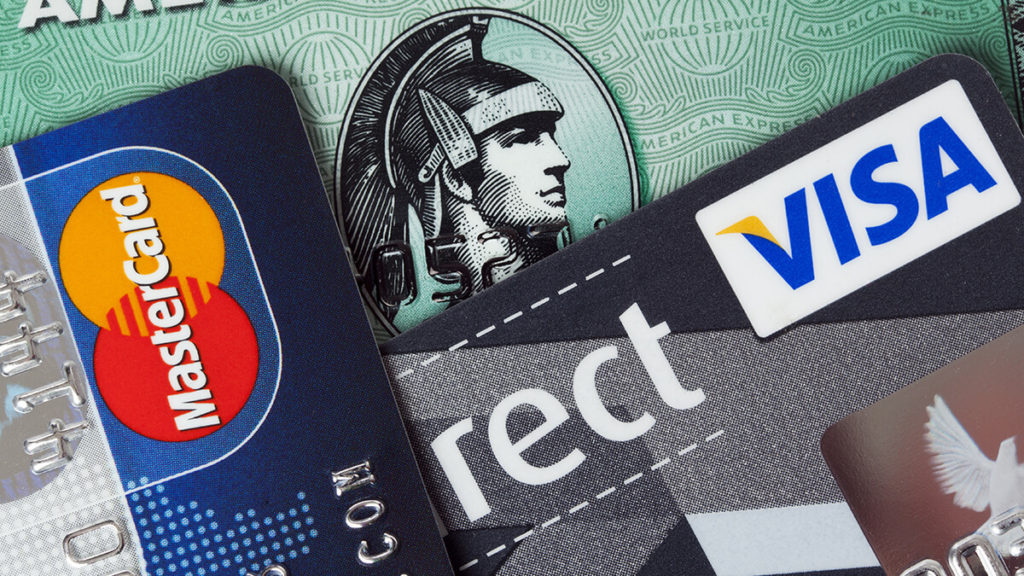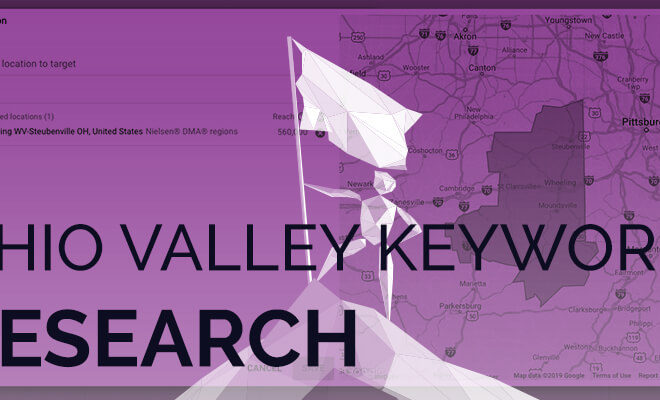My Domain Authority Credit Score
I’ve struck out many times when trying to explain domain authority to business owners. Most website owners don’t care about the math and leave that to the web nerds (like me). As much as I would love to say “don’t worry about how it works”, I feel obligated to try and explain (to the best of my knowledge) how the search algorithms work. The best analogy I have come up with for a website’s domain authority is comparing the score to a credit score.
What is Domain Authority?

How confused do you want to be? If you really want your head to spin, check out Wikipedia’s explanation. If you want the best explanation, go right to the source – Moz.
Domain Authority (DA) is a search engine ranking score developed by Moz that predicts how well a website will rank on search engine result pages (SERPs). A Domain Authority score ranges from one to 100, with higher scores corresponding to a greater ability to rank.
Domain Authority is calculated by evaluating multiple factors, including linking root domains and the number of total links, into a single DA score. This score can then be used when comparing websites or tracking the “ranking strength” of a website over time. Domain Authority is not a metric used by Google in determining search rankings and has no effect on the SERPs.
Moz.com
If that doesn’t make sense, we can always use my analogy.
Your Domain Authority is Your Websites Credit Score
Remember when you got that first credit card? You might have been right out of high school or in your early twenties. It was probably a 50/50 gamble for the credit company knowing if you were going to max it out and skip payments or buy a stick of gum and pay it right off. You were of age so they gave you a chance.

The same can be said for a website. You went over to GoDaddy and bought a domain for $12. That domain might go on to be a global powerhouse or sit dormant with an initial Hello World homepage. That brand new website has a credit score of 1.
Over the next few months, you pump out some content. You post on social networks and even get some shares. Slowly people start linking to your website. That credit score starts to build.
Why Does Domain Authority Matter?
There are some experts out there that dismiss DA. I get it – it’s not an actual metric used by Google or Bing. It’s a metric made up by a search engine optimization tool company. Before my time as an SEO, Google was a bit more transparent with some of its methods (see PageRank Google Toolbar). Of course, some of the black hat SEOs came in and exploited the formula. We are left at guessing.
For the same reason we have grades in school, we have Domain Authority for your website. I am a firm believer in doing the right thing to earn rank and not try to ‘hack the system’ – but I need some type of metric to show my hard work is paying off. I think DA does a good job of providing some feedback.
How Can You Increase Your Domain Authority?
Focus on your website and your website content and your Domain Authority will increase. I’m not going to try and explain (or fully understand) the Google algorithm. Adding relevant content to your site is the first step. The better the content, the more visitors you will get. Traffic and shares are a great indication that you are becoming an authority on a topic. Slowly you will see your DA increase.

A great way to increase your score is to get a co-signer. Remember when your parents used their credit as collateral so you could get that first car. You make the payments but pass on their credit to you. This is similar to getting a backlink from another website.
You wrote an awesome blog and now someone puts a link on their site linking to your blog. They have been around for ten years and have a respectable score (let’s say 40). This is a vote of confidence that an authoritative site recommends you and now your score jumps up a few points. This is the start to link-building.
Some Do’s and Don’ts of Link Building
Getting backlinks are difficult. This is why they are heavily weighed in the overall equation. Since backlinks are important, there are tons of companies that offer help. As you guessed, they will get you backlinks.
Links should be organic. If you pay to have your website on a thousand different websites, odds are these sites are known and flagged by Google. This might do more damage than good.
Guest blogs can be tricky. The whole concept of giving away quality information on someone else’s website and they can link to yours seems fine, but is this really an organic link? Sometimes yes and sometimes no. If you are truthfully adding value to their site and it makes sense, do it for the actual reach.
Forums and Social Media are great ways to get traffic. Much like known link-building websites, Google understands that anyone can post on social and comment on a blog with a URL. So, these aren’t usually ways to increase your backlinks – but they can generate website traffic. But of course, add value and don’t just spam every post or article you see.
Great content will get shares and links. Yes, this is super (super) difficult. The top searched results tend to get the most backlinks for articles. This makes the rich get richer – yet, there are techniques to find openings and earn actual backlinks.
Focus on What You Can Control

I guess you can control who links to your website, but it’s far easier to focus on some technical aspects of your site than hoping someone decides to write an article and link your specific website. Your overall domain authority goes hand-in-hand with your SEO efforts.
Things you can control:
- Fix those Titles and Descriptions on your pages.
- Make sure your images are optimized (small file size).
- Naturally use your keywords in your articles and pages.
- Spread links around your blog for other articles for your website.
- Use your analytics (web and social) to see what your customers like and are consuming.
Most website owners have technical issues holding their website back. Other websites might be squeaky clean but aren’t marketing correctly. There are so many items you can directly control before you start stressing about your link-profile.
What is a Good Credit Score (Domain Authority Score)?
Experian indicates that most credit scores fall between 600 and 750. If you manage to get in the 800-Club, you are considered ‘Exceptional’.
We can all strive to be exceptional, but odds are most of us are Good or Fair. The sad news is that most of us will never get to that 800 credit score for our website. The 800-Club consists of huge names. We are talking about global brands. We can still be effective and successful with our lower scores.

It’s easier to jump 10 points from being a 1 to an 11 than it would be to move from 30 to 40. As you climb, those points are harder and harder to gain. This is why most of us (that put some effort in) are in the 15-30 range. It takes a tremendous amount of effort and knowledge to get a better score. Since this is the case, we are rarely competing locally against these giants.
Most of the search queries that help our bottom line are locally driven. I compete against national web design companies but when you type “web design company Rayland OH”, I’m fighting against the other local companies. It’s a pretty level playing field.
In this case, you don’t need to be better than the national brands – just better than your competition. If you have a professional in your corner, you can easily jump 10-20 points over your rival by just practicing some SEO fundamentals.
The Category Matters
Congrats, you are the owner of a roofing business for this example.
You are doing your due diligence and creating great articles and sharing on social. A friend of yours owns a web design business and decides to write a nice little article and links to your site. He has a domain authority of a 20.
Another website decides to link to your website. This is from a local hardware store that has a domain authority of a 15.
Which link is better for you?
Getting links and referrals from your industry helps pass trust and authority. This is a clear indication by search engines that you are being recommended. A hardware store is far more relatable than a web design company. Even though my link counts and passes some weight, the hardware store is the better link
This is one reason why link building schemes don’t work. I would love to get a link on search engine related blogs, but buying a link on some homegrown ‘best top ten articles’ website doesn’t help much.
Should I Worry About My Sites Domain Authority?
So I just wrote nearly 2000 words on the topic. You would think that The answer is yes. Instead of directly answering, let me pose you with another question.
Do you worry about your own credit score?
Odds are most of you don’t – unless it’s time to buy a house or car.
Domain authority is the same. When you ask me why I’m not showing up on the first page but my competitor is, I might look at both domain authorities and compare. Unfortunately, you can’t increase it overnight when you get the score. It’s the little things month after month. It’s making those monthly payments one time that helps increase your score.
Remember, domain authority is not an actual metric used by search engines. It’s just an indication of the likeliness for you to rank. It’s something you can monitor to see if you are being rewarded for the correct online behaviors.
I wouldn’t run my credit score every day, but getting a report once a month helps me stay ahead of any negative trends or concerns. The little things will make the difference and being more informed will help you Trump your competition.
I think you should care about your Domain Authority at least once a month.
Wonder who has the best domain authority in the Ohio Valley and want to check yours?
New Blog and Downloadable content coming soon.





